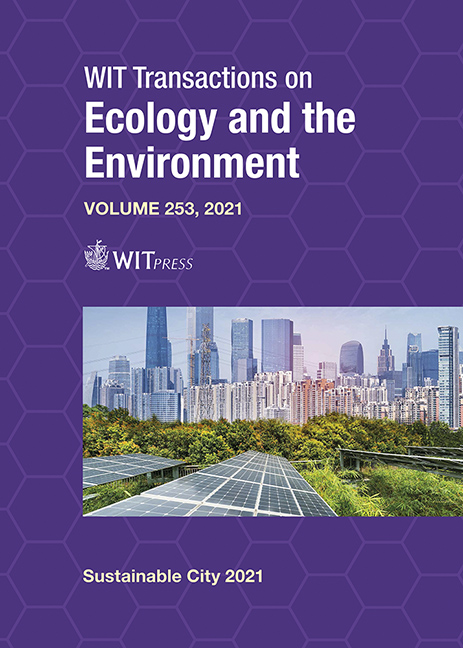SOCIO-ECONOMIC MODELS TO ASSESS AND POLICY INSTRUMENTS TO STEER THE IMPACT OF NATURE-BASED SOLUTIONS: A REVIEW
Price
Free (open access)
Transaction
Volume
253
Pages
14
Page Range
551 - 564
Published
2021
Size
386 kb
Paper DOI
10.2495/SC210451
Copyright
Author(s)
RITA MENDONÇA, PETER ROEBELING, TERESA FIDÉLIS, MIGUEL SARAIVA
Abstract
Urban challenges, such as climate change, economic development and land conversion, are increasing and attracting more attention, consequently widening the complexity of urban planning and decision making processes. Nature-based solutions (NBS) are considered to contribute to resolving these emerging urban problems. While models are available to assess the impacts of NBS on urban heat, air quality, flooding and water quality, there are few models that evaluate their socio-economic impacts. Even though statistical models could provide insight in their actual (ex-post) socio-economic impacts, simulation models represent a key tool to urban planning as they provide the opportunity to assess the expected (ex-ante) socio-economic impacts of NBS and, thus, allow better informed decision making before implementation. This paper provides, first, a review of socio-economic models that can assess the impact of NBS (either statistical or simulation) and, second, a review of socio-economic models that assess the effectiveness of policy instruments to steer urban development patterns. Results show that there is a lack of spatially explicit simulation models with the ability to assess the socio-economic impacts of different NBS. Most models that assess socio-economic impacts include statistical (ex post), non-spatially explicit or use non-European case studies. Socio-economic impacts evaluated include urban sprawl, housing prices and gentrification. Furthermore, there is a lack of models that have the potential to assess socio-economic impacts of NBS as well as the impact of policy instruments that influence urban development patterns. Hence, it is concluded that there is need for simulation models that allow to assess the expected (ex-ante) socio-economic impacts of NBS as well as the effectiveness of land use policy instruments.
Keywords
nature-based solutions, policy instruments, simulation model, socio-economic model





